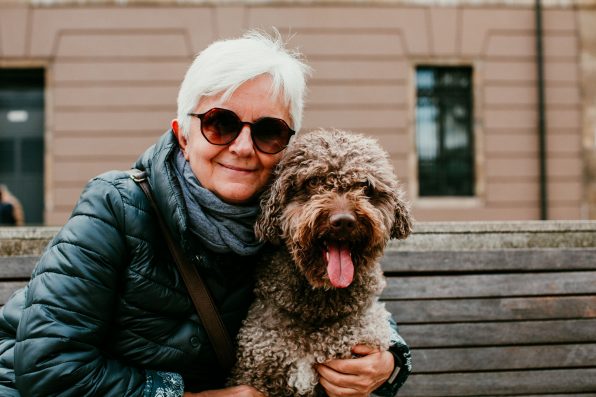New Research Suggests That Owning A Pet Is Associated With Slower Rates Of Decline In Verbal Memory And Verbal Fluency Among Older Adults Who Live Alone

Whether you’re young or old, single or in a relationship, dogs have long been known to be man’s best friend– offering priceless companionship to people of all ages and backgrounds.
But, owning a pet may be a particularly great strategy for individuals over the age of 50 who live alone to ward off dementia, according to new research.
A recent study conducted by scientists in China suggests that having a pet is associated with a slower decrease in verbal memory and fluency in older adults living solo.
Interestingly, though, the team realized that this advantage of pet ownership does not apply to older people who don’t live alone.
The study included over 7,900 participants from Britain, all of whom were over 50 years old. The average age of participants was 66, and 31.5% were pet owners. Additionally, 26.9% of the participants lived alone.
Past research has indicated that older individuals who live alone face an increased risk of dementia. But while certain studies have shown a beneficial link between owning pets and better verbal memory and executive function among the elderly, other research has failed to find any substantial proof of this connection.
That’s why the researchers aimed to clarify the connection between pet ownership and cognitive decline through their most recent study. The team also sought to understand how a pet owner’s living arrangement impacts this relationship.
According to the study’s authors, having a pet counteracted the link between living alone and decreasing rates of verbal fluency and verbal memory.
“Pet ownership was associated with slower rates of decline in verbal memory and verbal fluency among older adults living alone, but not among those living with others,” the authors wrote.

lubero – stock.adobe.com – illustrative purposes only, not the actual person or dog
“And pet ownership offset the associations between living alone and declining rates in verbal memory and verbal fluency. These findings suggest that pet ownership may be associated with slower cognitive decline among older adults living alone.”
Research forecasts that the global dementia population will triple by 2050– possibly affecting 150 million individuals. Right now, there is no absolute cure for dementia. However, new medications for managing its symptoms have been approved.
“And clinical trials are needed to assess whether pet ownership allows the rate of cognitive decline in older adults living alone,” the authors concluded.
To read the study’s complete findings, which have since been published in JAMA Network Open, visit the link here.
Sign up for Chip Chick’s newsletter and get stories like this delivered to your inbox.
More About:Science